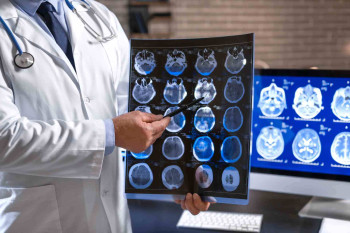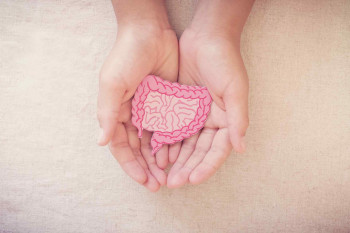The Silent Threat: How High Blood Pressure Affects Your Brain
Introduction:
Millions of people all over the world suffer from hypertension, or high blood pressure.It occurs when the force of blood against the walls of arteries is consistently too high.
While it may seem like a minor issue, high blood pressure can have serious consequences, especially for the brain.
High blood pressure, also known as hypertension, is a chronic condition characterized by consistently elevated blood pressure levels.
Blood pressure is the force of blood against the walls of arteries as the heart pumps blood throughout the body. When this force is consistently too high, it can have detrimental effects on various organs, including the brain.
High blood pressure is a prevalent health condition, that affects millions of people worldwide. It is often referred to as the "silent killer" because it typically does not cause noticeable symptoms in its early stages, making it important to monitor blood pressure regularly.
The impact of high blood pressure on the brain can be significant. The brain relies on a constant supply of oxygen and nutrients delivered through the blood vessels to function optimally.
When blood pressure is consistently elevated, it can lead to several detrimental effects on the brain, including:
Weakened Blood Vessels: High blood pressure can weaken the walls of blood vessels in the brain over time. This can lead to structural changes, such as thickening, narrowing, or hardening of the blood vessels, which can reduce blood flow to the brain and impair its function.
Increased Risk of Stroke: Weakened blood vessels in the brain can be more prone to rupture or form blood clots. This increases the risk of stroke, which is a serious medical condition where blood flow to a part of the brain is disrupted, leading to damage or death of brain tissue.
Hemorrhagic Stroke: High blood pressure can increase the risk of hemorrhagic stroke, which occurs when a blood vessel in the brain ruptures and causes bleeding. This can result in brain damage and can be life-threatening.
Ischemic Stroke: High blood pressure can also increase the risk of ischemic stroke, which occurs when a blood clot blocks a blood vessel in the brain, cutting off blood flow to a specific area. This can lead to brain tissue damage due to the lack of oxygen and nutrients.
Link to Dementia: Studies have also shown a connection between high blood pressure and the development of dementia, a group of cognitive disorders characterized by a decline in memory, thinking, and other cognitive abilities. Chronic high blood pressure can disrupt normal brain functioning and increase the risk of developing dementia later in life.
High blood pressure is a common health condition that can have serious consequences for the brain. Weakened blood vessels, increased risk of stroke, and a link to dementia are some of the potential impacts of high blood pressure on the brain.
Regular monitoring of blood pressure, adopting a healthy lifestyle, and working closely with a healthcare provider to manage high blood pressure can help prevent or minimize these detrimental effects on brain health.
It is essential to prioritize the management of high blood pressure to reduce the risk of related health issues and maintain optimal brain function.
What is High Blood Pressure?
Definition of high blood pressure.
How blood pressure is measured (systolic and diastolic pressure).
Normal blood pressure range.
Definition of High Blood Pressure:
High blood pressure, or hypertension, is a condition characterized by consistently elevated levels of pressure in the arteries, which are the blood vessels that carry blood from the heart to the rest of the body. When the force of blood against the artery walls is consistently too high, it can cause damage to the blood vessels and organs, leading to serious health complications if left untreated.
How Blood Pressure is Measured (Systolic and Diastolic Pressure):
Blood pressure is measured using a device called a sphygmomanometer, which consists of an inflatable cuff that is wrapped around the upper arm and a pressure gauge that measures the pressure in the cuff. The cuff is inflated to temporarily cut off blood flow to the brachial artery in the arm, and then slowly deflated while a healthcare professional listens for the sounds of blood flow using a stethoscope placed over the artery. The two numbers recorded during this process are the systolic and diastolic pressure.
Systolic Pressure: This is the top number in a blood pressure reading and represents the pressure in the arteries when the heart beats and pumps blood out to the rest of the body. It is the higher of the two numbers and indicates the maximum pressure exerted on the artery walls during a cardiac cycle.
Diastolic Pressure: This is the bottom number in a blood pressure reading and represents the pressure in the arteries when the heart is at rest between beats. It is the lower of the two numbers and indicates the minimum pressure in the arteries during the relaxation phase of the cardiac cycle.
Normal Blood Pressure Range:
A normal blood pressure reading is typically around 120/80 mm Hg, with the systolic pressure below 120 mm Hg and the diastolic pressure below 80 mm Hg. However, it's important to note that optimal blood pressure ranges may vary depending on factors such as age, overall health, and individual medical conditions. In general, blood pressure readings are classified into different categories:
Normal: Systolic pressure below 120 mm Hg and diastolic pressure below 80 mm Hg.
Elevated: Systolic pressure between 120-129 mm Hg and diastolic pressure below 80 mm Hg.
Stage 1 Hypertension: Systolic pressure between 130-139 mm Hg or diastolic pressure between 80-89 mm Hg.
Stage 2 Hypertension: Systolic pressure 140 mm Hg or higher, or diastolic pressure 90 mm Hg or higher.
Hypertensive Crisis: Systolic pressure higher than 180 mm Hg and/or diastolic pressure higher than 120 mm Hg.
It's important to note that blood pressure guidelines may vary depending on individual health conditions and risk factors, and it's best to consult with a healthcare professional for accurate assessment and management of blood pressure. Regular monitoring and management of blood pressure is essential to maintain optimal health and prevent complications associated with hypertension, including its effects on the brain.
How Does High Blood Pressure Affect the Brain?
The impact of high blood pressure on the brain.
Increased risk of stroke due to weakened blood vessels in the brain.
Development of hemorrhagic or ischemic stroke.
Role of high blood pressure as a leading cause of strokes.
The link between high blood pressure and dementia.
Risk of developing dementia later in life due to hypertension.
Disruption of normal brain functioning caused by high blood pressure.
Impaired cognitive function, including attention, memory, and processing speed.
Structural changes in the brain due to high blood pressure.
The Impact of High Blood Pressure on the Brain:
High blood pressure can have detrimental effects on the brain due to its impact on blood vessels and blood flow. Consistently elevated blood pressure can weaken blood vessels in the brain over time, leading to increased risk of stroke and other serious health complications.
Increased Risk of Stroke Due to Weakened Blood Vessels in the Brain:
The brain is a highly vascular organ, heavily dependent on a constant supply of oxygen and nutrients through a network of blood vessels. When blood vessels in the brain are weakened due to high blood pressure, they can become more prone to rupture or blockage, leading to a stroke.
Development of Hemorrhagic or Ischemic Stroke:
There are two main types of strokes: hemorrhagic stroke and ischemic stroke. Hemorrhagic stroke occurs when a weakened blood vessel in the brain ruptures and causes bleeding, while ischemic stroke occurs when a blood vessel in the brain becomes blocked, cutting off blood flow to a part of the brain. High blood pressure increases the risk of both types of stroke, as weakened blood vessels are more likely to rupture or become blocked.
Role of High Blood Pressure as a Leading Cause of Strokes:
High blood pressure is a leading cause of strokes, accounting for approximately 50% of all strokes. Consistently elevated blood pressure can damage blood vessels in the brain, leading to increased risk of stroke. Managing and controlling blood pressure levels is crucial in reducing the risk of stroke and its potential devastating effects on the brain.
The Link between High Blood Pressure and Dementia:
Emerging research suggests that there is a link between high blood pressure and an increased risk of developing dementia later in life. Dementia is a general term for a decline in cognitive ability severe enough to interfere with daily life. The exact mechanism behind the link between high blood pressure and dementia is not yet fully understood, but it is believed that the damaging effects of high blood pressure on blood vessels in the brain may play a role.
Risk of Developing Dementia Later in Life Due to Hypertension:
Studies have shown that individuals with a history of high blood pressure in midlife are at an increased risk of developing dementia later in life compared to those with normal blood pressure levels. Hypertension in midlife has been associated with a higher risk of cognitive decline, including impaired memory, attention, and processing speed, which are common features of dementia.
Disruption of Normal Brain Functioning Caused by High Blood Pressure:
High blood pressure can disrupt normal brain functioning by affecting blood flow and damaging blood vessels in the brain. Impaired blood flow to the brain can result in reduced oxygen and nutrient supply, leading to damage to brain cells and tissues. This can result in various cognitive and neurological symptoms, including difficulties with attention, memory, and processing speed.
Impaired Cognitive Function, Including Attention, Memory, and Processing Speed:
High blood pressure has been associated with impaired cognitive function, including difficulties with attention, memory, and processing speed. Chronic high blood pressure can lead to structural changes in the brain, such as reduced brain volume and increased white matter lesions, which can further impact cognitive function. Managing and controlling blood pressure levels may help reduce the risk of cognitive decline associated with hypertension.
Structural Changes in the Brain Due to High Blood Pressure:
High blood pressure can cause structural changes in the brain over time. Chronically elevated blood pressure can result in thickening and narrowing of blood vessels in the brain, reducing blood flow and oxygen supply to brain cells. This can also lead to the formation of white matter lesions, which are areas of damaged nerve fibers in the brain. These structural changes can disrupt normal brain functioning and contribute to cognitive decline and other neurological symptoms associated with high blood pressure.
High blood pressure, or hypertension, can have significant impacts on the brain. It Increases the Risk of Stroke:
Detailed explanation of how high blood pressure increases the risk of stroke.
Weakened blood vessels in the brain due to consistent high blood pressure.
Hemorrhagic stroke caused by bleeding in the brain.
Ischemic stroke caused by blood clot blocking blood flow to the brain.
Detailed Explanation of How High Blood Pressure Increases the Risk of Stroke:
Consistent high blood pressure can significantly increase the risk of stroke, a serious and potentially life-threatening condition that occurs when blood flow to the brain is disrupted.
High blood pressure can weaken blood vessels in the brain, making them more susceptible to rupture or blockage, which can lead to different types of strokes.
Weakened Blood Vessels in the Brain Due to Consistent High Blood Pressure:
High blood pressure puts constant pressure on the walls of blood vessels, including those in the brain. Over time, this pressure can weaken the walls of blood vessels, making them more prone to rupture or leakage. Weakened blood vessels in the brain are at a higher risk of hemorrhage, or bleeding, which can result in a hemorrhagic stroke.
Hemorrhagic Stroke Caused by Bleeding in the Brain:
Hemorrhagic stroke occurs when a blood vessel in the brain ruptures, causing bleeding into the brain tissue. This can be caused by weakened blood vessels due to high blood pressure.
The bleeding can damage brain cells and tissues, disrupting normal brain function and potentially leading to long-term neurological deficits.
Ischemic Stroke Caused by Blood Clot Blocking Blood Flow to the Brain:
Ischemic stroke occurs when a blood clot blocks a blood vessel in the brain, cutting off blood flow to a part of the brain. High blood pressure can increase the risk of blood clot formation due to the damage it causes to blood vessels.
Blood clots can block small arteries in the brain, leading to ischemic stroke. This can result in a lack of oxygen and nutrients to brain cells, causing damage and potential long-term complications.
High blood pressure can significantly increase the risk of stroke by weakening blood vessels in the brain and promoting the formation of blood clots. Hemorrhagic stroke and ischemic stroke are two types of strokes that can be caused by high blood pressure. It is important to manage and control blood pressure levels to reduce the risk of stroke and its potential devastating effects on brain health. Regular monitoring of blood pressure, lifestyle changes, and appropriate medical treatment can help prevent the complications of high blood pressure and promote overall brain health.
Can Increase the Likelihood of Developing Dementia:
Exploring the connection between high blood pressure and dementia.
Risk of developing dementia later in life due to hypertension.
Disruption of normal brain functioning and cognitive abilities.
Impact of high blood pressure on memory, learning, and other cognitive functions.
Exploring the Connection Between High Blood Pressure and Dementia:
Recent research has highlighted a link between high blood pressure and an increased risk of developing dementia later in life.
Dementia is a progressive condition characterized by a decline in cognitive abilities, including memory, learning, and other brain functions.
Risk of Developing Dementia Later in Life Due to Hypertension:
High blood pressure, also known as hypertension, has been identified as a significant risk factor for dementia. Studies have shown that individuals with uncontrolled high blood pressure are at a higher risk of developing dementia compared to those with normal blood pressure.
It is believed that the chronic strain on blood vessels in the brain due to high blood pressure can contribute to the development of dementia over time.
Disruption of Normal Brain Functioning and Cognitive Abilities:
High blood pressure can disrupt normal brain functioning, leading to impaired cognitive abilities. The brain requires a constant supply of oxygen and nutrients delivered through blood vessels to function optimally.
When blood vessels in the brain are damaged or narrowed due to high blood pressure, the brain may not receive enough blood flow, resulting in decreased cognitive function.
Impact of High Blood Pressure on Memory, Learning, and Other Cognitive Functions:
Memory, learning, and other cognitive functions can be significantly affected by high blood pressure. Chronic high blood pressure can lead to structural changes in the brain, such as the formation of plaques and reduced brain volume, which can impact memory and learning abilities.
High blood pressure can also impair other cognitive functions, such as attention, problem-solving, and processing speed, which can affect overall cognitive performance.
The connection between high blood pressure and dementia is a growing area of research, and evidence suggests that uncontrolled hypertension can increase the risk of developing dementia later in life.
High blood pressure can disrupt normal brain functioning and cognitive abilities, including memory, learning, and other cognitive functions.
It is essential to manage and control blood pressure levels through lifestyle changes, medication, and regular monitoring to reduce the risk of dementia and promote brain health in the long term. Consult with a healthcare professional for appropriate management strategies to maintain healthy blood pressure and reduce the risk of cognitive decline associated with hypertension.
FAQs:
Frequently asked questions related to high blood pressure and its impact on the brain.
Can high blood pressure be prevented?
While certain risk factors for high blood pressure, such as age, genetics, and family history, cannot be changed, there are several lifestyle changes that can help prevent or reduce the risk of developing high blood pressure. These include:
Healthy Diet: Eating a balanced diet that is low in salt, saturated fats, and cholesterol, and high in fruits, vegetables, whole grains, lean proteins, and healthy fats can help prevent high blood pressure.
Regular Exercise: Engaging in regular physical activity, such as brisk walking, cycling, swimming, or other forms of aerobic exercise, can help maintain a healthy weight, improve cardiovascular health, and prevent high blood pressure.
Limiting Alcohol Intake: Excessive alcohol consumption can raise blood pressure, so it's important to limit alcohol intake or avoid it altogether.
Quitting Smoking: Smoking is a significant risk factor for high blood pressure and other cardiovascular diseases. Quitting smoking can greatly reduce the risk of developing high blood pressure.
Stress Management: Chronic stress can contribute to high blood pressure. Practicing stress management techniques, such as mindfulness, meditation, yoga, or other relaxation techniques, can help prevent high blood pressure.
Can high blood pressure be treated?
Yes, high blood pressure can be treated and managed effectively. Treatment options may include:
Medications: There are several types of medications available to treat high blood pressure, including diuretics, beta-blockers, ACE inhibitors, ARBs, calcium channel blockers, and others. These medications work to lower blood pressure and reduce the risk of complications.
Lifestyle Changes: Along with medication, adopting healthy lifestyle changes, such as maintaining a healthy diet, regular exercise, limiting alcohol intake, quitting smoking, and managing stress, can help lower blood pressure and manage hypertension.
Regular Monitoring: Regular blood pressure monitoring is crucial in managing high blood pressure. This allows for timely adjustments in treatment plans and helps keep blood pressure within the desired range.
Follow-Up with Healthcare Provider: Regular follow-up appointments with a healthcare provider are important to monitor blood pressure, assess the effectiveness of treatment, and make necessary adjustments.
Are there any warning signs of high blood pressure?
High blood pressure is often referred to as the "silent killer" as it typically does not cause noticeable symptoms until it reaches a severe or life-threatening stage. Some individuals with extremely high blood pressure may experience symptoms such as severe headache, dizziness, blurry vision, chest pain, or shortness of breath.
However, these symptoms are not reliable indicators of high blood pressure and may be associated with other health conditions as well. Regular blood pressure monitoring is the most effective way to detect high blood pressure early and initiate appropriate treatment.
In conclusion
High blood pressure is not just a condition that affects the heart, but it can also have detrimental effects on the brain. It increases the risk of stroke, can lead to the development of dementia, and impairs cognitive function.
Managing and treating high blood pressure through lifestyle changes and medication adherence is crucial to protect brain health and overall well-being.
Regular check-ups with healthcare professionals and following their recommendations can help prevent the silent threat of high blood pressure on the brain. Stay proactive about your blood pressure, and prioritize your brain health!

























